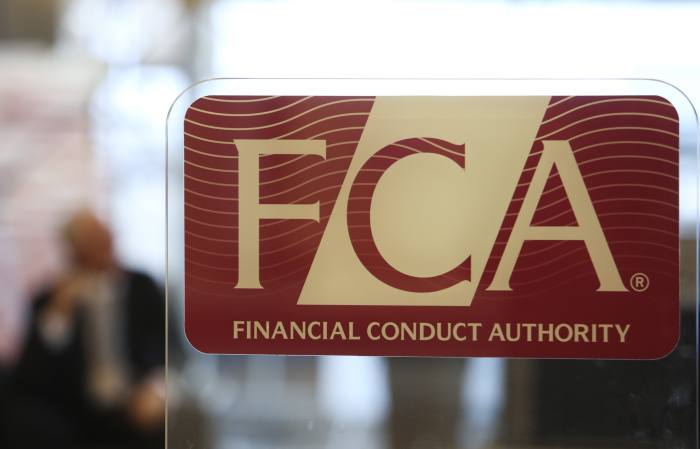Attacks from buy-now-pay-later providers have underlined the need for a makeover of the UK’s fusty-looking fintech regulation. Charlie Conchie is an Account Manager at communications consultancy Grayling. He works with Fintech and financial services companies on communications strategy, reputation management and political engagement. Here he outlines why fintech regulation needs a reputational refresh.

When the eye of the FCA fixed on the buy-now-pay-later (BNPL) sector last year, one of the market leaders Klarna went on what initially seemed like a charm offensive. “The time is right for regulation” and “we are fully engaged in the process” said Head of Klarna UK Alex Marsh in December.
Klarna’s communications response appeared as a smoothly coordinated product of compliance, comms, marketing and legal teams that positioned it as one of the good guys that just wanted what was best for the consumer. Under a tongue-in-cheek banner of “All fintechs hate regulation”, Klarna rolled out a campaign to dispel the myth that fintechs want to overthrow the system rather than work with it.
But even from one advert the jibes were clear: ‘let’s make regulation fit for today’; ‘Consumers want to bank, pay and shop in innovative new ways. And we want what’s best for them.’ In other words, ‘we’re working to make this a better financial system for consumers and you regulatory folk are not.’
Marsh’s December blog underlined this, saying that consumers “deserve the highest level of protection” and that regulation “should be updated for the digital age rather than relying on rules conceived nearly 50 years ago”. The framing of Klarna’s communications carefully shifted the culpability of dangerous debt onto outdated regulators.
Prior to this, New Zealand BNPL firm Laybuy even tried to step into the regulator’s shoes. In a cunning communications move, it drafted its own Code of Practice to protect consumers and called on other BNPL providers to sign. Managing Director, Gary Rohloff wrote that in ‘lieu of formal regulation, we have an obligation to help ensure the sector is acting fairly, openly and responsibly.”
The criticisms of an antiquated regulator were not without backing from outside the sector. Even while attacking the role of BNPL companies in endangering younger consumers, Martin Lewis, the personal finance champion, said that “the regulatory [services] and politicians are too old to have spotted this soon enough and don’t realise the level of penetration it’s making into society until it’s too late”.
These criticisms underline the essential balancing act at the heart of fintech regulation – fostering innovation and growth while protecting consumers.
But a key issue here for the FCA and its fintech regulation is how easily it has been outmaneuvered in the eye of the public. In an industry full of bright colours and young CEOs, it is simply too easy to paint the FCA and fintech regulation as the hand of the old guard playing catch up and slowing down innovation.
If the UK is to cement its status as a fintech hub post-Brexit, this reputation problem needs to be quickly remedied.
And importantly, the FCA’s actions are well ahead of its words. While it may be portrayed as lagging behind the pace by BNPL providers, the FCA is a global pioneer in rolling out sandbox initiatives that enable firms to test innovative propositions in the market with real consumers, with the stated aim of ‘identifying appropriate consumer protection safeguards’. A November 2020 report from the Association for Financial Markets in Europe flagged the role of the FCA and its sandbox schemes as underpinning the UK’s role as the regional leader in fintech.
These sandboxes are also becoming a framework for establishing better consumer protection globally. The FCA chairs the Global Financial Innovation Forum, a group of more than 60 member organisations, which is now rolling out the sandbox initiatives on a global scale.
The attacks from the sector and the media narrative around BNPL will not be a reputationally helpful one for fintech regulation as the FCA looks to reinvigorate its approach following the Fintech Strategic Review (Kalifa Review) this week. The review has reported its findings to the Chancellor to identify priority areas for industry, policymakers and regulators to support growth in the fintech sector. The regulator cannot be seen as the anchor restraining innovation, and attacks on its creaky processes from Klarna and co. may be a shot in the arm now the recommendations have been published.
To take on a two-syllabled moniker, adopt bright coloured branding and hire a young glamorous CEO might be a step too far, but there is clearly a need for the regulator to show that it is speaking the same language as its subjects.
It must be proactive in demonstrating its successes and show that it is creating regulatory environment that is fitting of the UK’s role as a globally leading fintech market. Fintech will only increase in profile in the public eye as Government champions it as an example of post-Brexit British innovation and success. The FCA must therefore ensure it does not leave itself open to more accusations of playing catch up.



